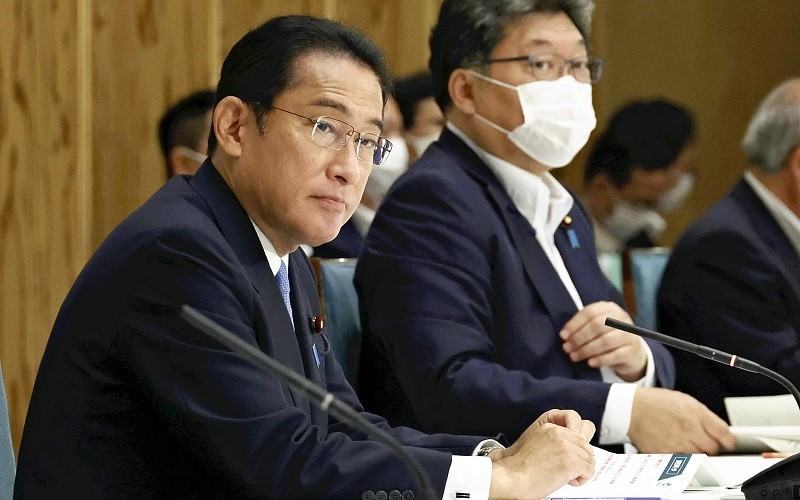Japan aims to set global standard to assess consumer-side CO2 emissions savings

Prime Minister Fumio Kishida attends the government’s first GX meeting in July at the Prime Minister’s Office in Tokyo.
15:45 JST, September 29, 2022
A global standard for evaluating the estimated emissions reduced from using green goods or services, also known as avoided emissions, is being sought by the government.
In cooperation with Western nations, Japan aims to draw up a policy and establish the global standard by this fiscal year, which ends in March 2023. The creation of such a standard is expected to help efficiently attract funding from financial institutions focused on green investments, while also encouraging the spread of energy-saving products and services.
The government has been holding Tokyo GX Week, a series of online international conferences on what it dubs GX for “green transformation,” since Monday. The conferences end on Oct. 7, when the government is expected to propose to each participating nation the creation of a standard for avoided emissions.
The reason to consider avoided emissions is to resolve some inconsistencies in measuring emissions.
For example, even if each consumer reduces carbon dioxide emissions through the use of an energy-efficient heater, the emissions generated by the producer through the heater’s manufacture will increase in proportion to an increase in its production. As a result, financial institutions could curtail their funding to the producer for seemingly not curtailing its emissions.
An envisioned standard would assess a society-wide evaluation for emissions, taking into account production and use.
A government panel of experts will discuss specific calculation methods as well as technologies to be covered. In cooperation with Western nations, the government is hoping to achieve results at the G7 meetings Japan will host in 2023.
"Politics" POPULAR ARTICLE
JN ACCESS RANKING





